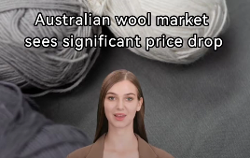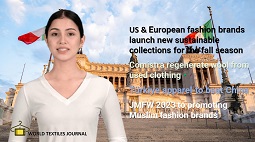In a landmark decision, the European Council has solidified its stance on the revision of the Waste Framework Directive, marking a significant leap forward in tackling the continent's growing textile and food waste challenges. Termed the 'general approach,' this directive sets ambitious targets aimed at transforming how these sectors handle waste, emphasizing sustainability and circularity.
At the forefront of this legislative overhaul is the textile sector, long recognized as a major contributor to Europe's waste footprint. Under the new directive, member states are mandated to implement separate collection systems for textiles by January 1, 2025, fostering re-use, preparation for re-use, and recycling. This move comes as a response to the staggering statistic that Europe produces 12.6 million tonnes of textile waste annually, with a meager 22% currently being recycled or re-used.
Central to the directive's strategy are harmonized Extended Producer Responsibility (EPR) schemes. These schemes require fashion brands and textile producers to contribute financially to the collection and treatment of textile waste. Fees will be determined using eco-modulation principles, which link charges to the environmental performance of products. Notably, higher fees can be imposed on companies practicing 'fast fashion,' encouraging a shift towards sustainable production and consumption patterns.
Moreover, the directive introduces inclusive measures, bringing microenterprises into the fold of EPR schemes to ensure equitable industry participation. This inclusive approach aims to spread responsibility across the sector while fostering innovation in waste management practices.
Recognizing the vital role of social economy entities such as charities and social enterprises, the directive permits these organizations to maintain their own collection points. This provision aims to preserve existing community-based collection networks and reduce administrative burdens through selective exemption from reporting requirements.
In tandem with its textile initiatives, the European Council has set binding targets to curb food waste by 2030. These targets include a 10% reduction in waste generated during processing and manufacturing and a 30% per capita reduction in retail, restaurants, food services, and households. Such measures underscore Europe's commitment to sustainable resource management and align with global efforts to combat climate change through reduced methane emissions and resource conservation.
Alain Maron, Minister of the Brussels-Capital Region, hailed the directive as a crucial step towards a more sustainable and circular economy. The adoption of the general approach now paves the way for negotiations with the European Parliament, signaling a new phase in legislative efforts to finalize the directive's text.
With these measures, Europe positions itself at the forefront of global environmental stewardship, setting a precedent for other regions grappling with the challenges of waste management. By targeting the textile and food sectors—two of the most resource-intensive industries—the European Union demonstrates its commitment to mitigating environmental impact while promoting economic resilience and innovation.
As discussions unfold in the European Parliament, stakeholders across industries, from fashion to agriculture, are poised to play a pivotal role in shaping the future of waste management policies. The directive's success hinges on collaborative efforts and shared responsibility, ensuring a sustainable legacy for generations to come.
In conclusion, Europe's adoption of the general approach on waste management marks a decisive stride towards a greener future, underpinned by bold legislative actions and a commitment to circular economy principles. As the continent prepares for the next phase of negotiations, all eyes are on Brussels, where the vision of a waste-free future inches closer to reality.





